
Attention, runners! Repeat after us: Carbs are good for me.
In fact, carbohydrates aren't just nutritious in the days leading up to a big race like a marathon -- they're essential. And with both the Boston Marathon and London Marathon right around the corner, we spoke with Pam Nisevich Bede, a registered dietitian with Abbott, Runner’s World contributor and experienced marathoner, to gain insight into the best ways to carb-load in the days before a big race.
"When you put months and months and hours and hours into your training, you want to make the most out of race day," Bede said. "And when you introduce more carbohydrates into your diet in those three days leading up to the race, you can really fulfill all of those glycogen stores and top off the tank. Glycogen stores are really the fuel for the muscle. Just like you wouldn’t start a road trip with a half-empty or quarter-empty tank of gas, you wouldn’t want to arrive at the starting line partially fueled."
When you do it correctly, carb-loading is the best way to prepare your body for the race it's about to endure. Bede suggests limiting protein and fat intake, all while making the most of your carbohydrate calories in the days before the race, starting with these five foods that benefit your health and your muscles' energy stores.
Whole Grains
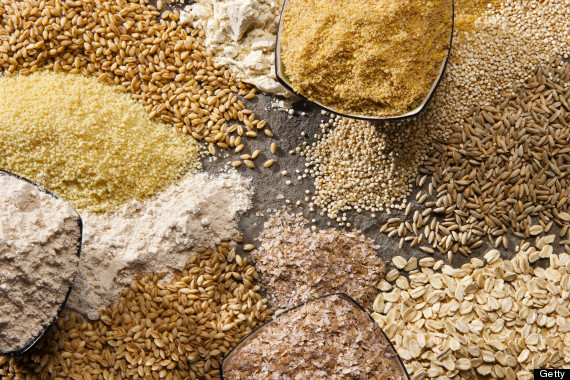
"Obviously we want to make at least half of our daily grain intake whole grains," said Bede. "Whole grains fight inflammation, and they give us some fiber. They keep not only the muscle stores stocked, but also your GI system healthy. They also keep your cholesterol levels where they should be. They do so much more than just give you carbohydrates."
Whole grains include foods made from whole wheat, whole grain corn, brown rice, steel cut oats, quinoa, and kamut.
Tart Cherries
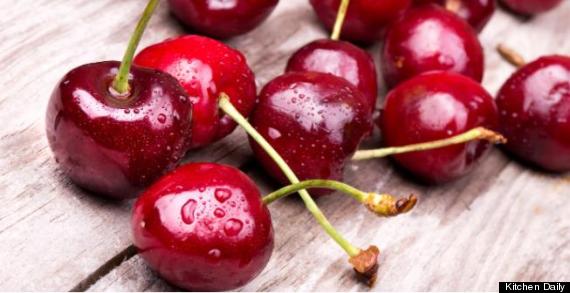
"Tart cherries are becoming more and more popular in the endurance community, because research is showing that they fight inflammation and help with muscle soreness," said Bede. "I personally think they taste great. I put tart cherry juice in a smoothie with EAS protein powder -- that’s my personal recipe for a shake for when I finish a run, even if I’m tapering. That way I get the carbohydrates and some recovery protein."
In order to enjoy both the flavor and health benefits of tart cherries, be sure to choose whole fruit or juice made from real cherries rather than just cherry flavoring.
Sweet Potatoes
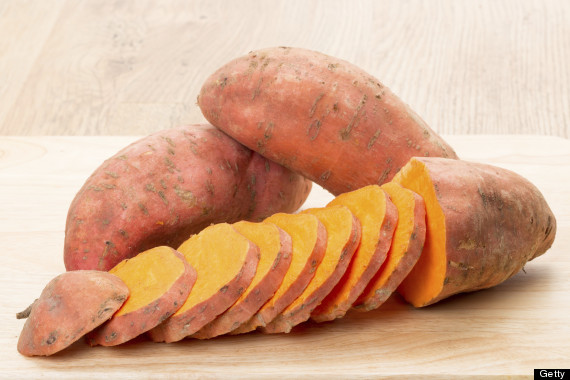
"A lot of us enjoy russet potatoes, and those are still a great choice," said Bede. "But when you grab a sweet potato, they’ve got that sweet tooth-satisfying taste, they’ve got beta-carotene, and they’re a great source of carbohydrates."
Sweet potatoes can be easily prepared in a variety of ways to meet one's carbohydrate needs at any meal. When mashed, they can even serve as a great gel fuel alternative mid-race.
Beets
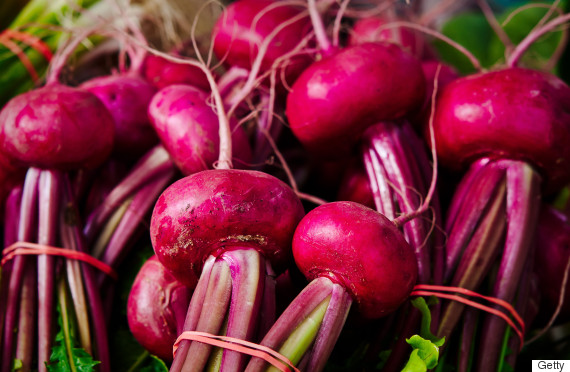
"Beets sound a little bit funny, because a lot of us don’t really incorporate them into our diet or think of them as a go-to when we look for a carbohydrate or a vegetable, but there’s a ton of research coming out about beets and how they can improve performance and fend off some fatigue, especially if you’re more of a back-of-the-packer," said Bede.
Beetroot is a rich source of inorganic nitrate, a compound the body converts into nitric oxide and uses to assist quicker blood flow, muscle contraction and neurotransmission. What does that mean? Beets can help you finish that race up to 3percent faster -- so start stockpiling if you're aiming for a new personal record.
Tea With Milk And Honey
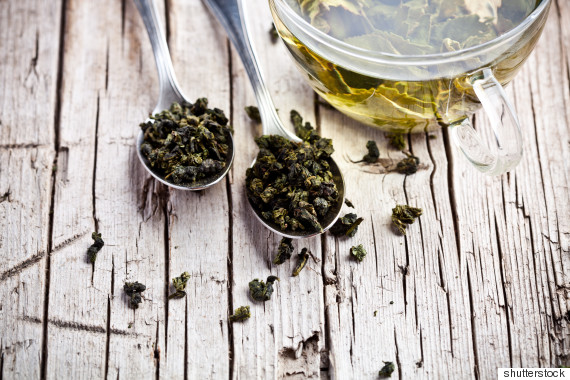
"In order to justify my intake of beverages like tea, I like to find a way it can fit into my carbohydrate plan," said Bede. "So add a skim milk or an almond milk or a honey to add carbohydrates, and enjoy the boost of caffeine. There’s no need to cut it out -- you can indulge with a cane sugar or a honey if you usually skip it, because you’re stockpiling it and going to burn it off."
How To: Before The Race
When it comes to incorporating these power foods into your diet in the three days leading up to the race, evaluate your meals and the times you typically add in extra protein and fat. For example, if you choose scrambled eggs for breakfast, opt for scrambled eggs on toast, and eat less scrambled egg and more toast. At dinnertime, cut your meat portion in half and replace it with a sweet potato alongside another veggie of choice. Even your water can receive a boost -- add a splash of tart cherry juice for flavor and additional carbohydrates. This is no time for calorie counting!
It's also critical to stay properly fueled during the race. Research shows that you must have 30 to 60 grams of carbohydrates every hour that you’re at the race course. When it comes to picking the right gels, chews or foods for you, it really comes down to trial and error, said Bede. Find a product that works best for you during longer training runs (nothing new on race day!), and remember to always chase them with water to allow for the quickest absorption of the carbs into your system.
"I recommend runners start early and often," said Bede in regards to the best time to begin fueling during the race. "Start within 30 minutes, which seems early, but that way you can take a little fuel at a time instead of cramming it in later in the race."
How To: Aprés-Run
Once you cross that finish line, make sure you consume 15 to 25 grams of protein within 30 to 60 minutes of completing the race. While you are undoubtedly going to experience some muscle breakdown after such an endurance feat, Bede explained that refueling with a high boost of protein helps restock the muscle to prevent additional breakdown, and additional carbohydrates begin replacing the glycogen stores you just spent. She prefers a ready-to-drink protein shake, and the earlier the better.
